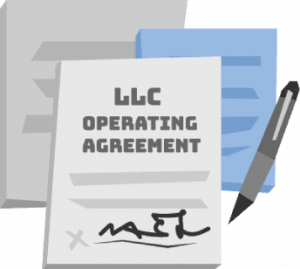How to Start an LLC in South Carolina
Forming a limited liability company (LLC) in South Carolina offers key benefits for business owners. Most importantly, it protects your personal assets from business-related lawsuits or debts. LLCs also provide a flexible management structure and enjoy pass-through taxation—meaning profits are taxed only once, on your personal income tax return. As an added bonus, South Carolina does not require LLCs to file annual reports, saving you both time and money.
To start an LLC, you fill out paperwork—called South Carolina Articles of Organization—and submit it to the South Carolina Secretary of State. The filing fee is $110 by mail or $125 online. You can do it yourself or hire someone (like us) to do it for you. There are also several other steps you’ll need to take to fulfill requirements with the federal government, strengthen your liability protection, and protect your privacy. Here’s how to do it.

1. Name Your LLC
You can’t start an LLC without first giving it a name. Your first step should be to search business names in South Carolina to see if your LLC name is available. If another business is using your preferred name, you’ll have to find another. From there you’ll need to make sure your name follows South Carolina’s naming laws (S.C. Code § 33-44-1205).
Your LLC name must:
- Include an approved indicator like LLC, limited, or company.
- Be unique among registered and reserved business names in South Carolina.
Tip: Not ready to form your LLC, but want to make sure no one else takes your super cool business name? File an Application to Reserve a Limited Liability Company Name with South Carolina’s Secretary of State and pay the $25 filing fee to reserve your LLC name for 120 days.

2. Get a Domain Name
A domain name that matches your business is key to standing out online—it boosts your search engine visibility and helps more customers find you. At Northwest, we make securing your domain fast and easy. In fact, every LLC we form includes:
- One year of free domain registration.
- A customizable business website that’s kept safe with top-shelf SSL security.
- Up to 10 professional business email addresses.
- A phone number with local area code.
- Friendly Corporate Guides®; have questions about a filing or form? We have answers!

3. File South Carolina LLC Articles of Organization
The South Carolina Articles of Organization is the name of the form you’ll submit to South Carolina’s Secretary of State to officially form your LLC. The information the state asks for can be confusing, and you want to make sure you get it right. Otherwise, they’ll reject your paperwork and you’ll be back at square one.
Here’s the information you’ll need for your South Carolina Articles of Organization:
This is the LLC name you plan to register with the state. You’ll need to include limited liability company or an abbreviation like LLC. Remember, it can’t be the same or similar to other LLC names in the state.
This is where you’ll list the address of your South Carolina registered agent. A registered agent is someone appointed to accept legal mail—called service of process—on behalf of your LLC. Appointing a registered agent is a legal requirement for all South Carolina LLCs.
The duties of a registered agent are defined in South Carolina’s registered agent regulations. In a nutshell, your registered agent must:
- Have a physical address in South Carolina
- Be present at that address during regular business hours (9am to 5pm)
- Accept legal mail on behalf of your business and get it to you quickly
You can serve as your own registered agent, but that means your name and address will go on South Carolina’s public record. That’s not ideal if you want to maintain your privacy. When you hire Northwest, we’ll list our name and business address on all South Carolina LLC filings allowable, keeping your name and address out of the public eye.
This is the person (or company) that you’ve appointed (or hired) to accept important legal mail for your business. Like we said, you can list your name here if you don’t mind your private information being broadcast on public record. Or learn how Northwest can help you live privately with your LLC.
Your organizer is the person who completes and submits your South Carolina Articles of Organization. This doesn’t have to be someone involved with your LLC. However, your organizer’s information will become public record. If you hire Northwest, we’ll be your organizer and list our information here.
If you want your LLC to dissolve after a set amount of time, check the box and specify the length of time here. If you don’t have a set end date in mind, skip it.
Check the box if your LLC will be manager-managed. LLCs are either member-managed or manager-managed. In a member-managed LLC, the members (owners) will be in charge of the day-to-day operations. In a manager-managed LLC, members hire managers to run the LLC. Managers are in charge of regular business tasks like hiring and firing employees, managing credit and bank accounts, and signing agreements and contracts.
Check out our LLC Member vs Manager page to learn more about your LLC management options.
If the LLC is manager-managed, you’ll have the option to list the name and address of each manager. Note: This information will become part of the public record, but it is not required.
Check this box to make any members personally liable. Hint: Most LLCs skip.
If you want, you can delay the start of your LLC for up to 90 days. Hint: Most LLCs skip.
Attach anything extra (for example, a business purpose) here.
Each person (organizer) completing and submitting this form must sign and date the form. If you hire Northwest, we’ll sign for you.
How do you file South Carolina Articles of Organization?
You can submit your Articles of Organization to the South Carolina Secretary of State online ($125) or by mail ($110). Mailed filings are required to include two copies of your Articles (each signed by your organizer).
Mail:
South Carolina Secretary of State’s Office
Attn: Corporate Filings
1205 Pendleton Street, Suite 525
Columbia, SC 29201
Online:
South Carolina Online Filing System
Tip: Filing online is the way to go. Online filings are approved within two business days. Mailed filings can take up to two weeks to be approved (add in additional time for mailing). If you don’t have a South Carolina business filings account, you can get one here.

4. Adopt an Operating Agreement
South Carolina does not require LLCs to have an operating agreement, but you’d be wise to draw one up. That’s because your LLC’s operating agreement acts as a road map for every scenario your business is likely to face. Your operating agreement should focus on big-picture issues like distribution of profits, initial investments, removing a member, and even what to do when it’s time to close the business.
Tip: Keep it simple and use our attorney-approved South Carolina operating agreement template.

5. Get an EIN
An Employer Identification Number (EIN) is like a Social Security number, but for businesses instead of individuals. The IRS will use your LLC’s EIN to identify it on tax filings. Getting an EIN is also an important step in setting up a business bank account or if you plan to hire employees.
You can get an EIN from the IRS for free by filing online, by mail, phone, and even fax. Filing online is fastest, but you’ll need to file by mail if you don’t have a social security number. If you’d rather focus on getting down to business, hire Northwest, and we’ll get your EIN for you.

6. Get a Business Bank Account
Opening a bank account specifically for your business is a must. If you mingle your personal and business finances, your personal assets could be vulnerable to a lawsuit or bankruptcy. A court could find that the owners of the LLC and the business itself are not separate entities because they didn’t take the step to separate finances.
To open a business bank account you’ll need a copy of your South Carolina Articles of Organization, your LLC’s EIN, your operating agreement, and if your LLC has multiple members, an LLC Resolution to Open a Bank Account.

7. File State Reports & Taxes
While most states require LLCs to file an annual report and pay a filing fee, South Carolina gives most LLCs a break. Unless you’ve elected to have your LLC taxed as an S-corp or C-corp, you won’t have to worry about filing an annual report for your South Carolina LLC.
What about South Carolina LLC taxes?
South Carolina LLCs are taxed as pass-through entities. This means that the LLC’s profits will pass through to each member’s personal tax return. Profits earned by you LLC are subject to the federal self-employment tax rate of 15.3%. Your LLC will also need to pay state and local taxes on sales made in South Carolina.
Let’s Start South Carolina LLC!







